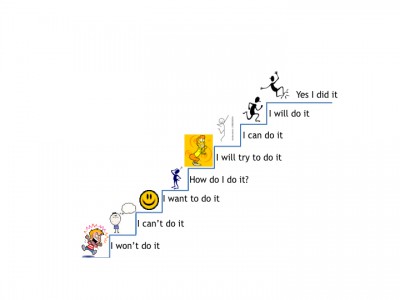Can reality shows teach you anything about your workplace? Before I had the misfortune to turn ill on my last adventure to Borneo, I would have said - not much. So a few weeks and a couple of reality shows later I have changed my mind. Since I am so interested in leadership, communication, group dynamics and relations I soon got caught up in a couple of the shows. The different roles and behaviors are much more apparent on TV since they choose to show only the juicy stuff.
As in organizations some people think long term and do everything they can for the group. If they spend time taking care of necessary tasks instead of politics, they will be thrown out, no matter if the group will suffer when they are gone. In a workgroup, I always find several people that are extremely good at what they do. Management tends almost to forget that these people exist until they for some reason don’t turn up at work. Those are my favorites. They have much knowledge and are not involved that much in meetings and other non-essentials. They are left doing their job and often like that someone pays attention to them. Their competence could be used much better. When I lead a project my primary goal is to get the results I have been hired to accomplish. Those persons don’t get thrown out at the earliest stages of the reality shows, but on the other hand, they never win.
Other people only care about politics. Of course, they take on some of the assignments since they don’t want people to understand how little they do. They don't mind hiding behind a wall pretending to be working if they get the opportunity, backstab people, or fool them into trusting in them. That it hurts the others and the group long term does not seem to bother them. Do I need to mention that they are never thrown out early in the show? They are often one of the persons staying longest on the farm/beach/whatever.
We can love and hate the people that take part in reality shows, and even make jokes about them, but we seldom notice the same behaviors in organizations.
So who are the ones that often win or at least come a long way? The ones that work just hard enough not to be considered lazy, but not so hard that they don’t have time and energy for politics. They should also not be unusually energetic, quiet or talkative. They should be pleasant, friendly, a bit interesting, but not too much. At least this works for Nordic reality shows, except for Paradise Hotel and similar. Unfortunately, workplaces seem to function the same way, at least in the big organizations. So we end up having nice, quiet workplaces with not too many changes.
To make things happen turbulence is unavoidable. Maybe we need to be more accepting, and even welcome differences? Perhaps we should let the hard working, long term thinking guy win, or the one that has a different view on most things. They might both be better for your company if you want to become the winner in the new reality. We can all agree that change is inevitable! The workplace might be a bit more turbulent until we all learn to communicate better when we have different opinions, but in the long run, we will all be better off.












